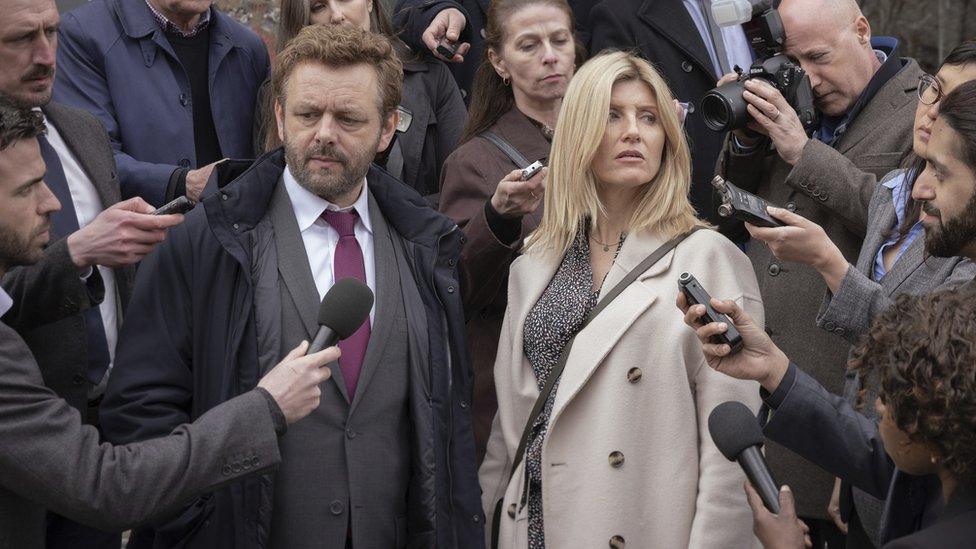Ban naming Birmingham NHS trust in girl's treatment row lifted
- Published
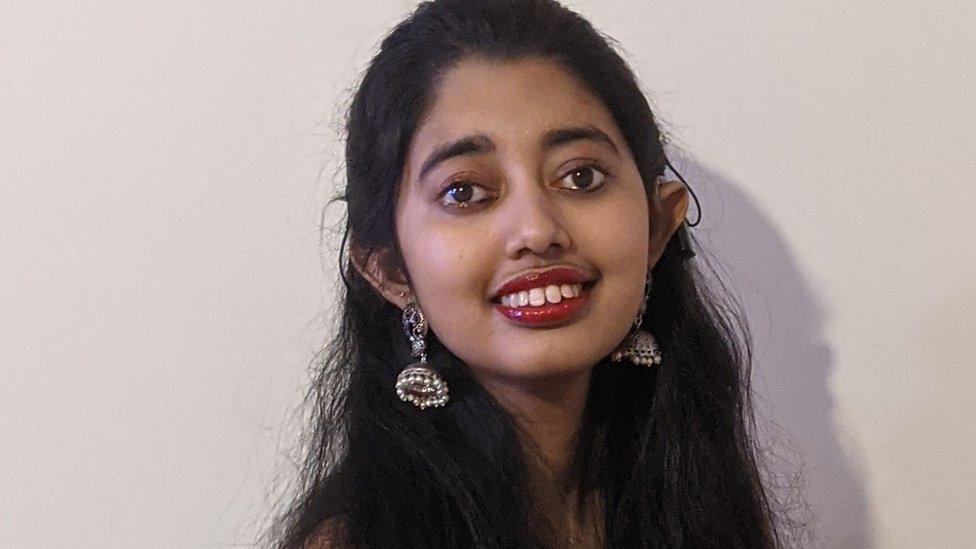
Sudiksha Thirumalesh died earlier this month during a legal battle
The family of a teenager who died during a legal battle over her life support treatment has had a ban naming the NHS trust involved overturned.
Sudiksha Thirumalesh, 19, had mitochondrial disease and was being treated by University Hospitals Birmingham NHS Foundation Trust.
Her family said they had been "unfairly gagged" by reporting restrictions.
The trust praised the "devotion and dedication" of Ms Thirumalesh's family.
The teenager, who died earlier this month, had wanted to raise money for an experimental treatment in Canada she thought might help her rare genetic disorder.
The NHS trust said Ms Thirumalesh needed end-of-life care rather than ongoing treatment.
At a hearing on Friday Mr Justice Peel said the trust could now be named but that the identities of the doctors who treated her could not be published until late November.
Known as ST throughout the legal case, the judge ruled earlier this month the teenager could be named for the first time.
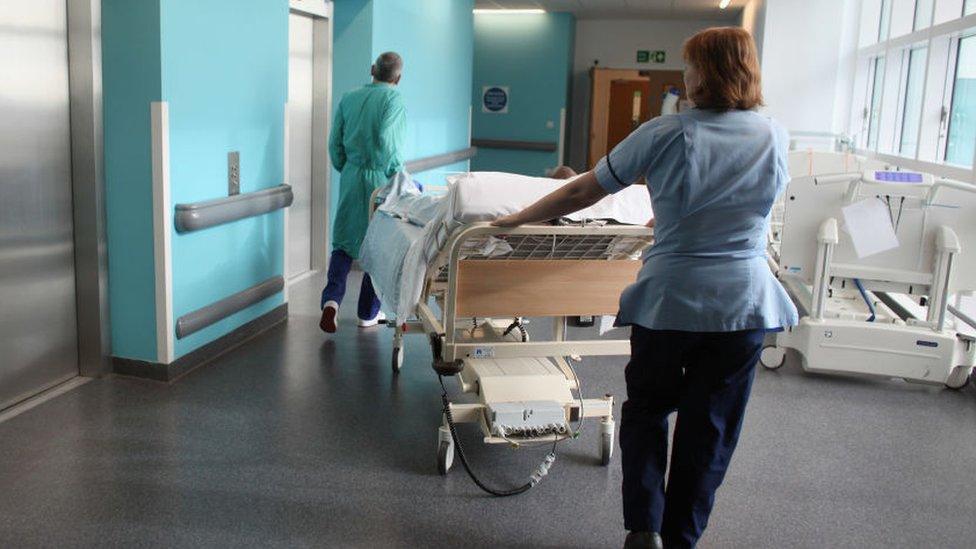
University Hospitals Birmingham looked after Sudiksha Thirumalesh - but the hospital has not yet been named
Following the latest judgment, Ms Thirumalesh's father Thirumalesh Chellamal Hemachandran said the family was disappointed by the decision not to name the doctors or hospital.
"We have been unfairly gagged by these reporting restrictions for over six months," he said.
"If not for those restrictions, our daughter might well still be alive," he added.
"We cannot even name the people who, in our darkest hour, have made it worse for Sudiksha and the whole family."
Andrea Williams, chief executive of the Christian Legal Centre, which had supported the family, said there was "no evidence" of any risk of harassment or violence against the doctors involved in the case.
A judge had earlier imposed reporting restrictions in the case.
The order meant it was impossible for media outlets to name Ms Thirumalesh, or the trust involved and her family was unable to campaign to raise money for treatment overseas.
The teenager had wanted to finance a trip to Canada for nucleoside therapy but, in August, a judge ruled that she could not make the decision for herself, because she did not have the mental capacity.
Doctors said her breathing difficulties were due to her deteriorating mitochondrial disease weakening her muscles, rather than long Covid or other infections that she had.
Lawyers for the trust said Ms Thirumalesh was "actively dying" and needed a ventilator to breathe.
At the High Court hearing on Friday the judge expressed his condolences to Ms Thirumalesh's family saying: "As they sat courteously in court, the distress of ST's mother in particular was palpable.
"The events of the last few months must have been harrowing," he added.
In a statement the trust said: "We offer our sincere and heartfelt condolences to Sudiksha's family and loved ones, at this devastating and difficult time for them."
The spokesperson described her illness as "incurable and progressive: there was no known treatment that would be effective", adding it was unclear whether Ms Thirumalesh would have been well enough to make the journey to North America even if a placement and funding had been confirmed.
Ms Thirumalesh was diagnosed with the same condition as Charlie Gard, a baby from London, whose life support was withdrawn in 2017.
What is mitochondrial disease?
There are different types - some are present at birth but others can develop later in life, often in young adults
The mitochondria are the engines of the body's cells and provide energy for all metabolic processes
The underlying genetic cause may be different for different people but all result in the inability of the mitochondria to produce the right amount of energy
That causes debilitating physical, developmental and cognitive disabilities
It can affect different parts of the body, particularly those that require a lot of energy like the brain, heart and liver
The disease is progressive and has no cure

Follow BBC West Midlands on Facebook, external, Twitter, external and Instagram, external. Send your story ideas to: newsonline.westmidlands@bbc.co.uk, external
- Published23 September 2023

- Published1 September 2023
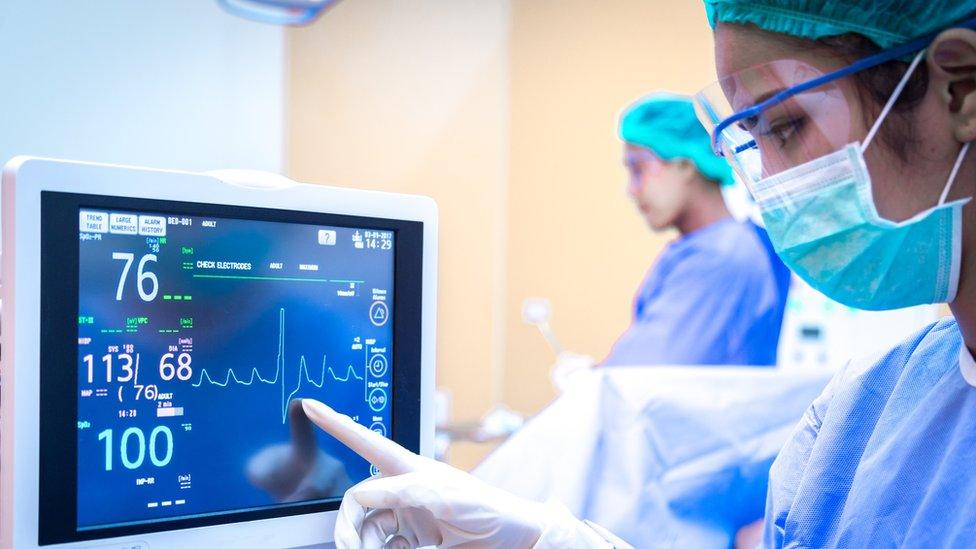
- Published27 July 2017
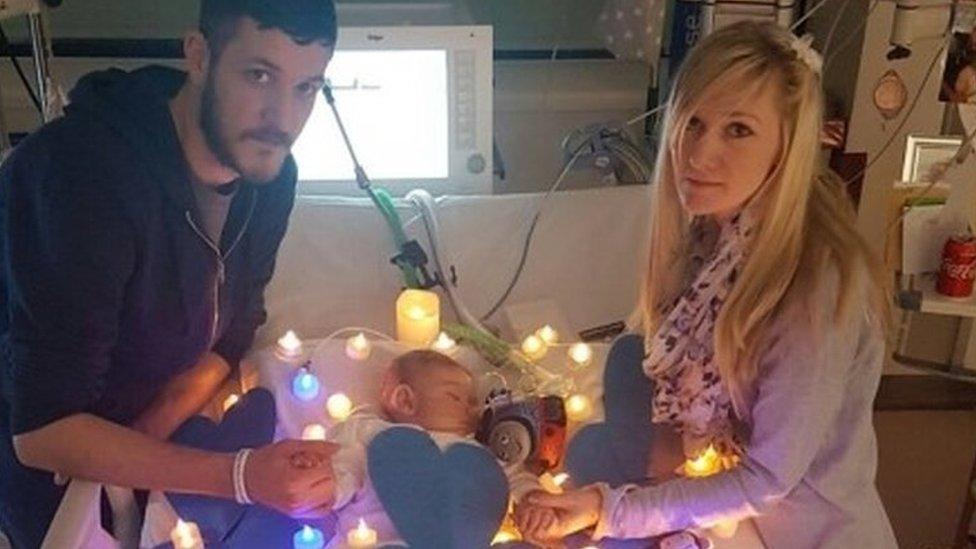
- Published13 June 2023
